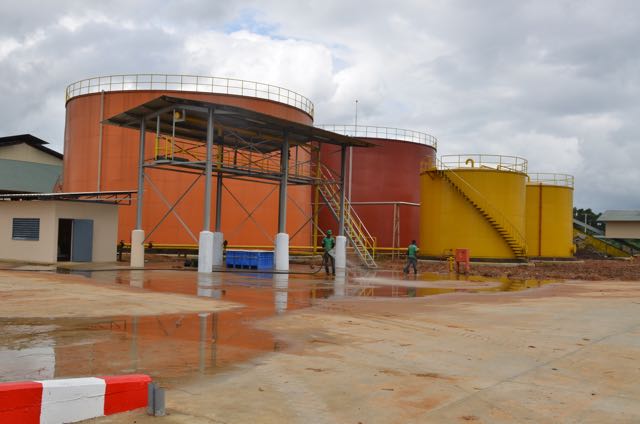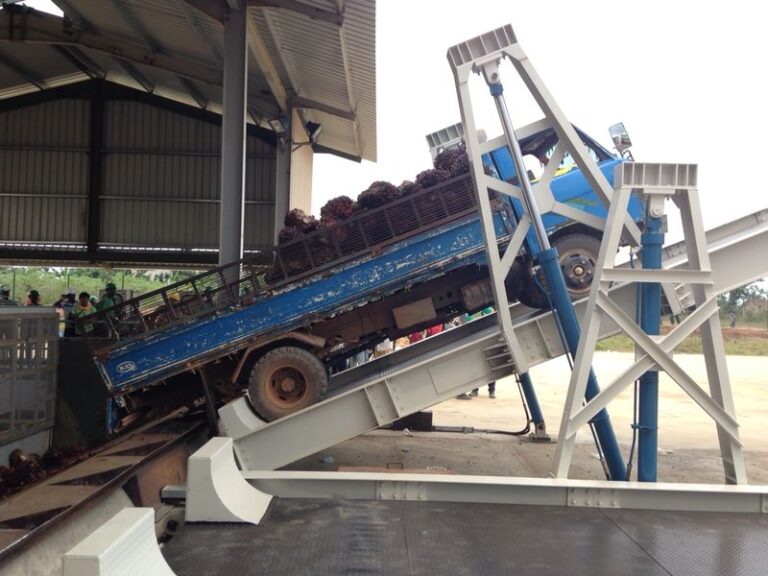Dekel Agri-Vision plc (LON:DKL) Executive Director Lincoln Moore caught up with DirectorsTalk for an exclusive interview to discuss cashew first production, record palm oil production, outlook and financial guidance.
Q1: Dekel Agri-Vision have had two really key announcements, cashew first production and your annual palm oil production and sales release. Can we start first with cashew first production? It was a key milestone for the company, can you just give us an update on the current status of the plant?
A1: A key milestone getting through the full value chain and having first production. At this stage, about to 85% of the mill is now fully commissioned which is great, it means we’ve got our employment team on site, learning very quickly the full process from initial buying of the raw materials, which we have roughly 2,000 tonnes on hand, through the whole full process to final packaging so that’s in terrific shape.
We have two key bits of equipment still to arrive which were in announcement last Thursday, one is the colour sorter, which is coming from China which is due for shipment later this week and the shelling machinery, which will be coming in three lots of five machines per time. This is the key piece of equipment left in terms of bringing the mill to full production so the first shipment will be in the next four week or so.
So, we expect to see capacity levels increase materially over the next one to three months and then we’ll be at full production so there’ll be a lot of key announcements in the meantime as that business moves into full production and becomes a contributor to the group from early this year.
Q2: So, what can investors expect to see in terms of next milestones and the ramp up to full capacity?
A2: As I just mentioned, I think that the shipments, the first sales of cashews which we do them in bulks so each container is 16 tonnes so we’ll accumulate a number of containers and we’ll be starting with different buyers, I think in Europe, in the US and over time looking to settle with one or two reliable best paying customers.
I think the absolute key is when we announce it’s fully commissioned at the 10,000 tonnes material throughput, which in effect the full capacity can be 15,000 tonnes so that is really key.
I think one of the other key things to look out for is, as the production settles, is the number of whole versus broken. At the moment, I believe we’re estimating broken at about 40% and we’re hopeful that the amount of broken cashews will be much lower, which will mean the revenue line of profitability of the overall plant can be materially higher than it’s currently forecast.
Q3: Can you summarise then the project economics for when the plant is at full capacity?
A3: So, the initial 10,000 tonne capacity, we think the revenue line will be something like €13 million and EBITDA to the group of something €3.5-4 million. As we move to 15,000 tonnes there, we expect the revenue line can move up to €20 million, which is something which potentially can happen next year. Then everything set in place for the mill to double in size, up to 30,000 tonnes and at that level, revenue should be pushing €40 million and EBIDTA could push somewhere between €10-15 million.
So, in time we think it’ll be a bigger business than what’s been quite a successful and currently successful palm oil business and add significantly to the group.
Q4: Just moving on to the palm oil business. You’ve had a very strong production sales update this morning with multiple monthly and annual results records, can you just talk us through some of the highlights there?
A4: Very, very strong second half to the year and a very strong December, production was over 100% higher like-for-like compared to December last year so a great way to finish the year.
Solid production at the moment and also pricing has continued to increase throughout the year so we’ve had record pricing of the CPO in December, we importantly had a very significant uplift in our PKO pricing, over €1,300 a tonne in December compared to €800-900 throughout the year. That’s because we started finding waste export that product in regional Africa at much better prices than we can get locally.
So, it all bodes well as we start the high season imminently.
Q5: High season is just about to start, how do you view the outlook then based on that?
A5: We obviously can see and have a lot of vision on the start of the pricing side so the pricing side, we have a lot of vision on so we think that the pricing over the next few months of €925-960 is a really reasonable estimate. This price this time last year was materially lower so we feel a long way ahead on pricing as we start January and looking forward.
In terms of the fruit volumes, it’s always really tricky to predict, we are reasonably confident that we’re going to start with a stronger January than last year, but it is quite early in the month and the high season really starts to ramp up towards the end of the month. We’ve forecast actually at this stage just to match the 2021 production so that’s the plan, obviously we’d like to do higher.
Another key aspect for us is we are looking hopeful that the extraction rate, which averaged out at 21% this year, which is materially lower than what we’ve done in the past, more like 22%/22.5% can move back to those levels, which can in itself drive an additional up to €2 million of straight net profit after tax for the business.
So, a lot to look forward to on the pricing and hopefully the extraction rate and volumes at least last year’s, hopefully obviously materially better, we’ll see that play out over the next few months.
Q6: It seems like you’re pretty confident in a further increase in financial performance, can you just give us a little bit more in terms of financial guidance?
A6: We had the Arden Research put out today so that’s probably the best guidance on our indications of our results of 2021 and what the numbers look like for 2022. The 2021 will clearly be a record in terms of revenue, the previous highs will see €2 million and the revenue number we think will be €37 million euros, maybe a touch higher than that and EBITDA of just under €5 million. I should note that that includes roughly we think something like €600,000 of the cashew expenses pre-production so the palm business was more like €5.5 million.
So, moving forward to 2022, it’s looking like we can materially uplift again, revenue from €37 million up towards the €50 million I think is really achievable. The palm business itself, I think can move north of €40 million revenues simply on the current higher prices and, of course, we have cashew coming into full production and we’ve at this stage only included roughly 50% to 60% of the annual capacity in those numbers.
There’s a reasonable outlook in terms of confidence of the achievability of those numbers and potentially areas where we can do better. The outcome or forecast of 2022 of revenue near €50 million, EBITDA €9 million and net profit after tax over €5 million puts us in a completely different bracket to where we’ve been in the past and lots to look forward to and lots to focus on for Dekel Agri-Vision.






































